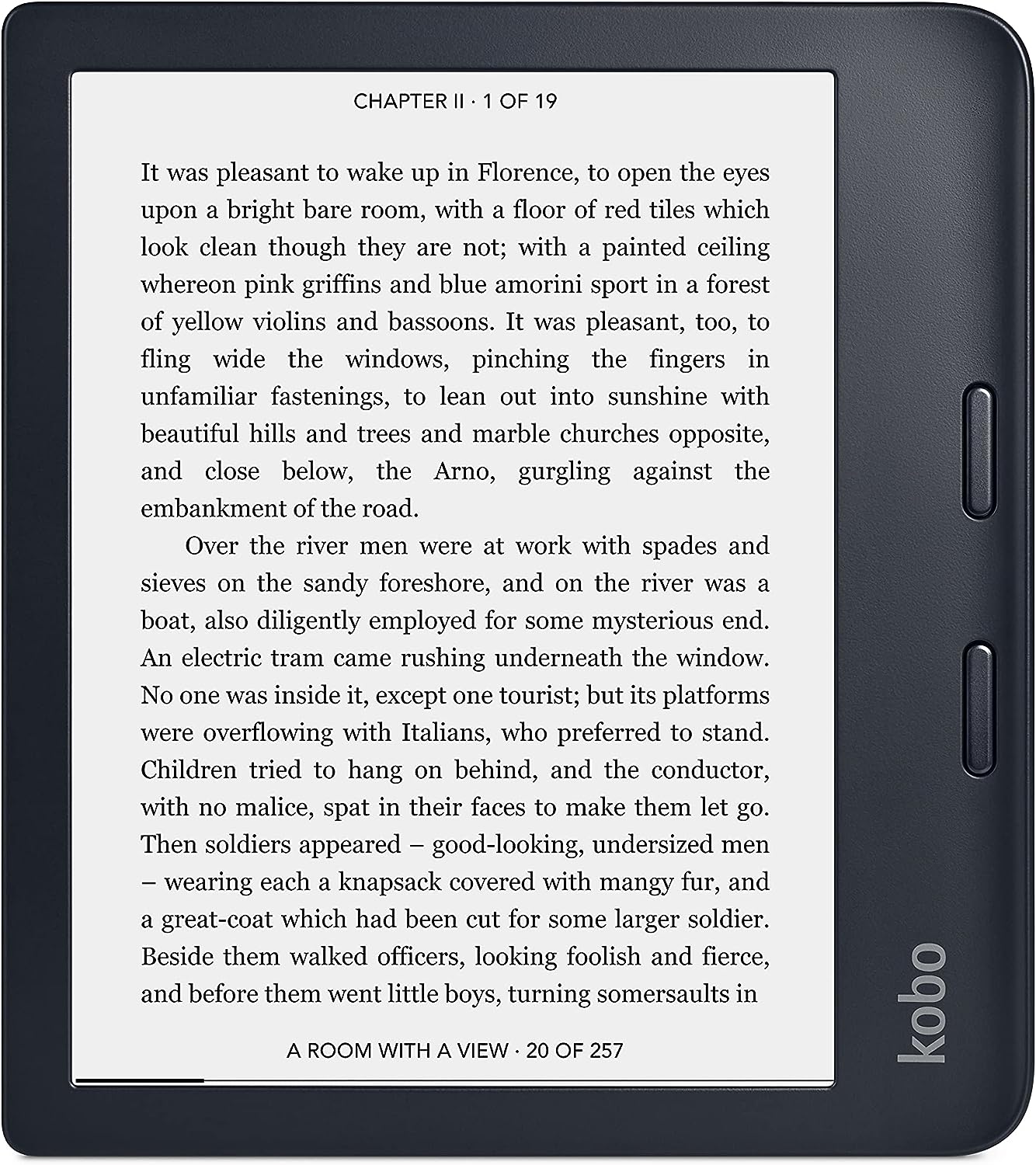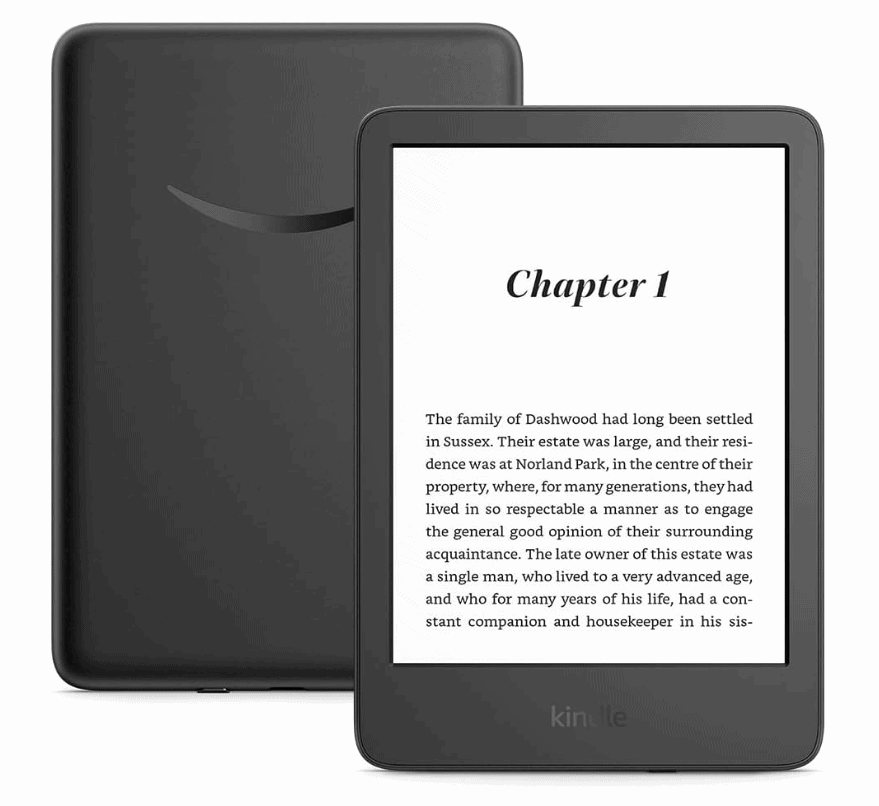This has to be THE MOST common question I get asked by anyone looking to buy their first ereader.
"Should I go for Kobo or Kindle?"
The good news is that, if you choose one over the other, you won’t be disappointed.
I’ve created a nice comparison below and highlighted the key features of each along with a score.
Right at the end I’ll also give you my personal favorite and the one I use most days.


Kindle: Amazon's Kindle range, notably the Paperwhite and Oasis, features a classic and sturdy design.They are known for their robust build and ergonomic design. [Score: 8/10]
Kobo: Kobo eReaders, like the Forma and Libra, offer a more minimalist and lightweight design. They are highly portable and ergonomically crafted, though slightly less premium in feel compared to some high-end Kindle models. [Score: 7/10]
Kindle: Kindle eReaders, especially the Oasis, boast high-resolution displays with Amazon's proprietary Paperwhite technology, providing a paper-like reading experience. The lighting is evenly distributed, making for comfortable reading. [Score: 9/10]
Kobo: Kobo’s devices, particularly the Forma, offer large screens with crisp, clear resolution. The ComfortLight feature stands out for its adjustable color temperature, which is easier on the eyes in various lighting conditions. [Score: 8.5/10]
Kindle: Kindle devices are renowned for their long battery life, often lasting several weeks on a single charge under normal usage conditions. They set a high standard in the eReader market. [Score: 9/10]
Kobo: While Kobo eReaders also offer impressive battery life, they generally fall slightly short of Kindle's longevity, requiring more frequent charging. [Score: 8/10]
Kindle: The Kindle Store is unmatched in its vast selection of titles, including many Amazon exclusive eBooks. Kindle Unlimited adds significant value for avid readers with its extensive library. [Score: 9/10]
Kobo: Kobo’s eBook store provides a wide range of international and indie titles, appealing to a diverse global audience. Kobo Plus, though newer, is expanding its offerings, presenting a solid alternative to Kindle Unlimited. [Score: 8/10]
Kindle: Kindle eReaders offer an intuitive, user-friendly interface, making them accessible to a broad range of users, including those not tech-savvy. [Score: 8.5/10]
Kobo: Kobo’s interface provides more customization options and supports a broader range of file formats, catering to tech enthusiasts and avid readers who require format flexibility. [Score: 8/10]
Kindle: Kindle offers standard Wi-Fi connectivity, with certain models also providing cellular options. They integrate seamlessly with Amazon's ecosystem, making book purchasing and synchronization straightforward. [Score: 8.5/10]
Kobo: Kobo eReaders offer reliable Wi-Fi connectivity and are compatible with a variety of devices for eBook transferring. However, they lack cellular options. [Score: 7.5/10]
Kindle: Kindle eReaders range from the budget-friendly basic model to the premium Oasis, offering a choice for every budget. However, the high-end models can be pricey. [Score: 8/10]
Kobo: Kobo provides competitively priced eReaders, with its high-end models generally being more affordable than Kindle's equivalents. They offer great value, especially for those who need an eReader supporting various file formats. [Score: 8.5/10]
Kindle: Strengths include a vast eBook library and seamless Amazon ecosystem integration. Limitations include less format support compared to Kobo. [Score: 8/10]
Kobo: Advantages include support for a wide range of formats and a diverse international content library. However, it has a smaller eBook store compared to Amazon. [Score: 7.5/10]
Kindle: Allows you to side-load library book using the Libby App, but not much else. If you are outside of the US you’ll find it difficult to do this. [Score: 6/10]
Kobo: On the other hand, Rakuten owns Libby, and while the app isn’t perfect, it does make borrowing library book directly to your Kobo device a breeze. [Score: 8/10]
Kindle: Users often praise Kindle for its user-friendly experience and extensive library. It leads in sales and customer satisfaction in many markets. [Score: 9/10]
Kobo: Kobo is commended for its format flexibility and international content offering. It is gaining popularity, especially in markets outside the USA. [Score: 8/10]
Kindle Score: 83/100
Kobo Score: 79/100
As you can see there really isn't much between them. Both provide a good user experience. However, over the years I have turned more to Kobo as it does have a better interface and it feels like there less of a sales pitch on the homepage.
No matter which brand you end up going with, I hope you enjoy this new experience of reading books.
